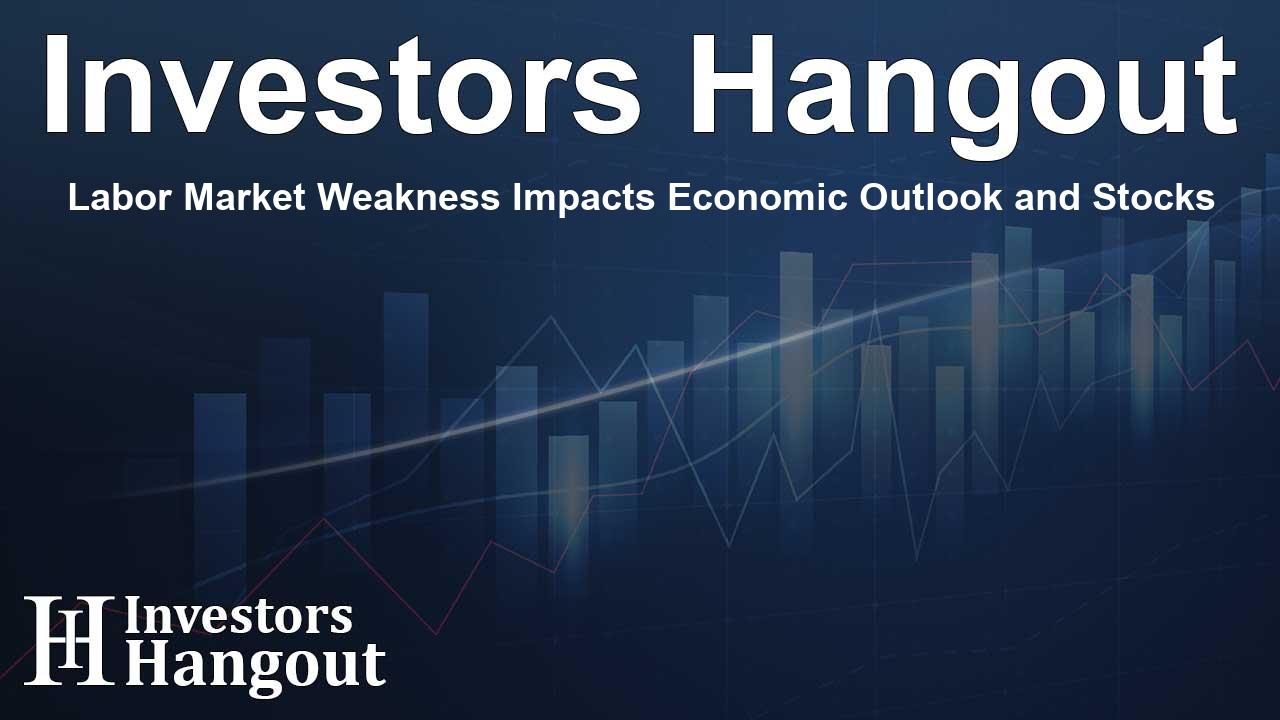Labor Market Weakness Impacts Economic Outlook and Stocks

Labor Market Overview: A Wake-Up Call for Investors
The recent labor market statistics presented a disheartening picture as new jobs in July totaled only 73,000, which fell short of the 110,000 anticipated by analysts. This signifies one of the weakest performances in the last five years, leading many to reassess economic projections.
In addition to this disappointing news, the revisions for past months have been stark. Analysts noted a sharp downward adjustment, totaling 258,000 in lost jobs for the previous two months. The jobless rate has also seen an uptick, reaching 4.2%, raising concerns about the overall strength of the economy.
Understanding the Implications of Weak Payroll Data
The state of employment unveiled in July indicates significant stress within the economy. The addition of just 73,000 jobs marks a severe decline from the weaker job figures of June, which were revised downward dramatically from 147,000 to merely 14,000. Further unsettling is the payroll count for May, which dropped to a mere 19,000—another stark revision.
Interestingly, while healthcare continued to show growth by adding 55,000 jobs, other sectors struggled. The government sector alone experienced a reduction of 12,000 jobs, totaling an 84,000 drop since earlier this year. Moreover, the manufacturing sector shrank by 11,000 jobs, alongside another 14,000 jobs cut from professional and business services, reflecting a broader economic slowdown.
Alongside these figures, the potential increase in the unemployment rate indicates more workers are withdrawing from the labor force, threatening economic stability. As has been noted, with reduced immigration flows, the economy now requires around 100,000 jobs each month to align with the growth of the working-age population, making July’s numbers particularly troubling.
The Federal Reserve: Pressure Mounts for Policy Changes
In light of the weakening jobs data, speculation regarding the Federal Reserve's possible policy shifts has intensified. Financial markets are beginning to price in the likelihood of rate cuts sooner rather than later, possibly as soon as next month. Federal Reserve Chair Jerome Powell had previously described conditions as balanced, but the latest employment data has reignited concerns.
As noted by analysts, this recent report opens the door wider for the Fed to consider easing its monetary stance. The precarious balancing act that the Fed faces includes addressing inflation, which may be spurred by tariff policies, while simultaneously responding to signs of labor market deterioration.
Market Reactions: Stocks and Economic Indicators
The disappointing employment report triggered significant selloffs across US equity markets. Key indices like the Dow Jones Industrial Average and the S&P 500 experienced sharp declines, confirming the current economic anxiety among investors.
The Dow dropped 652.45 points, closing at 43,478.53, with the S&P 500 also facing a significant decline of 107.93 points. The technology-heavy Nasdaq experienced the most pronounced downturn, falling 468.41 points amid fears regarding growth prospects in the sector.
Focusing on specific companies, technology giants faced notable setbacks. For instance, NVIDIA Corporation (NASDAQ: NVDA) witnessed a drop of 2.31% to $173.77, reflecting market sentiments, while Amazon.com (NASDAQ: AMZN) plunged by 6.76%. This broad decline was mirrored in the VIX volatility index, which surged over 15%, highlighting the escalating investor concerns.
Additionally, the bond markets displayed a shift in sentiment, with Treasury yields declining—a telling sign that investors are bracing for the implications of potential Federal Reserve actions. The 10-year Treasury yield fell considerably, echoing expectations for a more accommodative monetary policy as a response to the labor market's fragility.
Currency fluctuations also illustrated this changing landscape, as the US dollar weakened against significant currencies, like the euro and yen. These movements reflect broader reassessments of the US economic strength in response to the recent employment data.
Conclusion: Preparing for Future Economic Challenges
The unfolding labor market scenario presents crucial challenges for policymakers and investors alike. As the Federal Reserve weighs its options, market participants must stay alert to shifts in economic indicators, particularly employment statistics.
Frequently Asked Questions
What startling labor market statistics were released recently?
In July, only 73,000 jobs were added, significantly lower than the expected 110,000, indicating economic weakness.
How have recent revisions affected previous employment figures?
Revisions for the last two months totaled downward adjustments of 258,000 jobs, affecting the perception of job growth.
What impact does this data have on Federal Reserve policy?
Weaker job numbers have increased speculation regarding potential rate cuts from the Federal Reserve in response to economic challenges.
How did the stock market respond to the labor market report?
The US equity markets experienced sharp declines, with notable drops in major indices such as the Dow and Nasdaq.
What were the trends in bond and currency markets following the report?
The bond market showed declining yields, and the US dollar weakened against other currencies, reflecting changes in investor sentiment.
About The Author
Contact Owen Jenkins privately here. Or send an email with ATTN: Owen Jenkins as the subject to contact@investorshangout.com.
About Investors Hangout
Investors Hangout is a leading online stock forum for financial discussion and learning, offering a wide range of free tools and resources. It draws in traders of all levels, who exchange market knowledge, investigate trading tactics, and keep an eye on industry developments in real time. Featuring financial articles, stock message boards, quotes, charts, company profiles, and live news updates. Through cooperative learning and a wealth of informational resources, it helps users from novices creating their first portfolios to experts honing their techniques. Join Investors Hangout today: https://investorshangout.com/
The content of this article is based on factual, publicly available information and does not represent legal, financial, or investment advice. Investors Hangout does not offer financial advice, and the author is not a licensed financial advisor. Consult a qualified advisor before making any financial or investment decisions based on this article. This article should not be considered advice to purchase, sell, or hold any securities or other investments. If any of the material provided here is inaccurate, please contact us for corrections.
